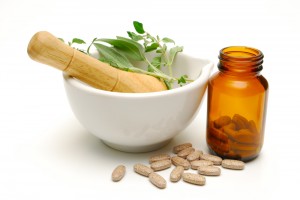
Herbal Drugs
Herbal drugs are a finished product which is labeled depending upon the ingredients contained in them. Active ingredients like the underground or aerial part of the plant or plant material or a combination of both is contained in herbal medicines. Herbal medicine products in the form of dietary supplements are taken to promote one’s health and wellness. However, it is incorrect to ingest them without a prescription as some can lead to health problems of a different sort, some may interfere with other drugs or some may not be very effective. Standardization of dietary supplements is very important for evaluating the drug quality based on the strength of their active principles.
Need for Standardization of Herbal formulations
Greater numbers of people are moving towards use of herbal medicines in today’s times, in view of the shortcomings of modern medicine which are becoming known each day. It is the absolute responsibility of the regulatory authorities in this regard to guarantee availability of pure, safe, potent and effective herbal medicines to the consumer.
Various quality standards as laid down in formularies, pharmacopoeias or manufacturing operation are followed through statutory imposed good manufacturing practices by regulatory authorities. However, in case of herbal medicines it is difficult to attain a standard quality profile on account of the inherent variability of the plant constituents. Batch to batch differences begin from the raw material collection stage itself due to lack of any reference standard for identification. Further, stages of storage and processing add on to the variations.
Herbal drugs or products, whether they have their origin in Ayurveda or Unani, need to follow standardized procedures in their manufacture. Standardization of Ayurvedic drugs should encompass the complete process right from cultivation of medicinal plant to its application in clinical laboratories. Herbal remedies obtained from these drugs account for a major share of the global market and hence it is necessary to adopt internationally recognized guidelines for their quality control. Standardization of Ayurvedic formulations assumes a critical role in this context. WHO Guidelines on Standardization and Quality control of Herbal Drugs
The WHO has issued guidelines with respect to standardization of herbal drugs and its evaluation. A brief summary of the contents will give an idea about the scope of work involved.
• Identity of the drug: Includes botanical evaluation, microscopical, histochemical, histological evaluation etc.
• Physicochemical parameters of the drug: Includes physical and chemical identity, extractive values,
chromatographic fingerprints, moisture content etc
• Pharmacological parameters: Includes biological activity profiles, foaming index, bitterness values etc.
• Microbiological contamination
• Radioactive contaminationThe above mentioned processes include a wide range of scientific investigations which encompass physical, biological and chemical evaluation and employ varied analytical tools and methods. Each investigation has a specific aim in assuring herbal quality. - See more at: http://thscenter.com/blog/?p=180#sthash.0E1mzaFV.dpuf
ResearchGate: http://www.researchgate.net/profile/Kirti_Laddha/



